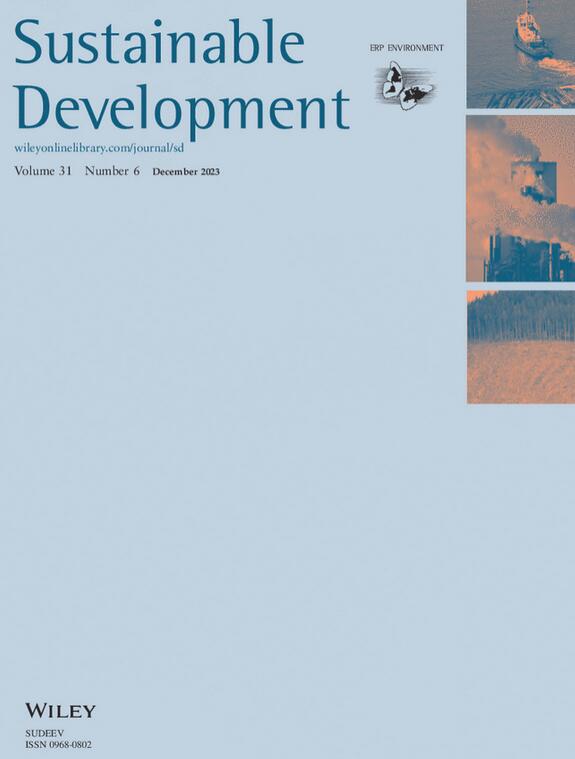增强农业可持续性:调查农业用地、绿色创新和粮食生产在减少温室气体排放方面的作用
IF 9.9
1区 环境科学与生态学
Q1 DEVELOPMENT STUDIES
引用次数: 0
摘要
要保护环境、人口和资源,就必须采取可持续农业做法。可持续发展可以加强粮食安全、保护生态系统并有助于应对气候变化,与联合国可持续发展目标(SDGs)(如 SDGs 2、7 和 13)相一致。有鉴于此,本研究探讨了农业用地、绿色创新、粮食生产、可再生能源和粮食贸易开放度对全球温室气体(GHG)排放的影响,同时将绿色创新与农业用地相互作用,研究对象为 1980 年至 2021 年期间排名前 20 位的农业国。研究采用了创新方法,包括矩量回归法、Dumitrescu 和 Hurlin 2012 因果关系法,还应用了稳健性 DKSE、NWSE 和脊回归法。研究结果表明,农业用地、绿色创新和粮食生产在各个量级上增加了温室气体排放量。而可再生能源、粮食贸易开放度以及绿色创新与农业用地之间的相互作用则减少了温室气体排放。此外,DH 因果关系显示变量之间存在双向因果关系。DKSE、NWSE 和脊回归均证实了其稳健性。这项研究极大地促进了可持续发展目标 2、7 和 13 的实现,为制定兼顾生产力和环境可持续性的有效政策提供了一个全面的框架。在世界顶级农业生产者面临不断变化的全球挑战之际,本研究为实现具有复原力和生态意识的未来绘制了路线图。本文章由计算机程序翻译,如有差异,请以英文原文为准。
Augmenting agricultural sustainability: Investigating the role of agricultural land, green innovation, and food production in reducing greenhouse gas emissions
Sustainable agriculture practices are necessitated for environmental, population, and resource conservation. Embracing sustainability can enhance food security, preserve ecosystems, and help combat climate change, aligning with the United Nations Sustainable Development Goals (SDGs) such as SDGs 2, 7, and 13. Given that, the study explores agricultural land, green innovation, food production, renewable energy, and food trade openness impact on global greenhouse gas (GHG) emissions while interacting green innovation with agricultural land, for the top 20 agricultural countries from 1980 to 2021. The study utilized innovative methods including method of moments quantile regression, Dumitrescu, and Hurlin 2012 causality also for robustness DKSE, NWSE, and ridge regression applied. The findings unveil that agricultural land, green innovation, and food production escalate the GHG emissions throughout quantiles. While renewable energy, food trade openness, and interaction between green innovation and agricultural land reduce GHG emissions. Additionally, DH causality shows a bidirectional causal association among the variables. Whereas the robustness is confirmed by DKSE, NWSE, and ridge regression. This research significantly contributes to SDGs 2, 7, and 13, offering a comprehensive framework for crafting effective policies that balance productivity and environmental sustainability. As the world's top agricultural producers confront evolving global challenges, this study lays out a roadmap toward a resilient and ecologically conscientious future.
求助全文
通过发布文献求助,成功后即可免费获取论文全文。
去求助
来源期刊

Sustainable Development
Multiple-
CiteScore
17.30
自引率
11.20%
发文量
168
期刊介绍:
Sustainable Development is a publication that takes an interdisciplinary approach to explore and propose strategies for achieving sustainable development. Our aim is to discuss and address the challenges associated with sustainable development and the Sustainable Development Goals. All submissions are subjected to a thorough review process to ensure that our readers receive valuable and original content of the highest caliber.
 求助内容:
求助内容: 应助结果提醒方式:
应助结果提醒方式:


